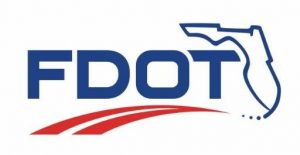
The Florida Department of Transportation (FDOT) today released the agenda for each of the December Multi-Use Corridors of Regional Economic Significance (M-CORES) Task Force meetings and scheduled additional public meetings for each of the task forces. The additional meetings in February and April will allow more time for each task force to study various aspects of the proposed M-CORES projects and achieve the items the task forces are charged with under state law.
“Collectively, the M-CORES proposals are slated to be Florida’s most significant infrastructure projects in decades. It is critical that the task forces take every consideration, so that the planning, project development, and design processes are followed flawlessly,” said Florida Department of Transportation Secretary Kevin J. Thibault, P.E. “By facilitating additional meetings, I am confident the department is providing the support task force members need so they may complete the required assessments, which are so paramount to this process.”
The December meetings will occur as previously scheduled and will include:
- Reiterating task force roles and responsibilities to guide the planning, project development, and design process; and
- Starting task force member discussion on the pros and cons of the following within their respective communities:
- Hurricane evacuation routes;
- Broadband, water, and sewer connectivity;
- Power distribution;
- Autonomous, connected, shared, and electric vehicle technology;
- Shared-use bike and pedestrian trails, freight and passenger rail, and public transit;
- Mobility as a service;
- Congestion mitigation; and
- Trade and movement of freight opportunities.
In advance of the December meeting, the department has begun gathering data from sister agencies and subject matter experts related to each of the above topics. This data will be disseminated to the task force for use within their discussions.
By October 2020, each M-CORES Task Force must evaluate the unique needs of each respective proposed project area, any economic and environmental impacts, hurricane evacuation impacts, land use impacts, and design features to protect or mitigate environmental impacts. To successfully complete their evaluation, each task force shall:
- Coordinate public and stakeholder involvement;
- Collect relevant data;
- Coordinate among agencies;
- Provide design recommendations;
- Submit Avoidance Minimization Mitigation & Enhancement (AMME) recommendations; and
- Develop guiding principles and recommendations.
To ensure each step of the process is afforded adequate time for consideration and inform the public of specific meeting topics, all upcoming meeting agendas will also more clearly communicate the items that will be considered and deliberated among the task force members.
For information regarding M-CORES, public meeting dates and locations, or to submit a comment related to the proposed projects, visit FloridaMCORES.com.
